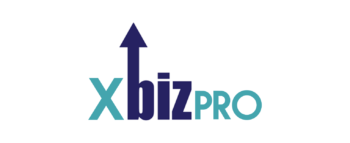Personal development is a journey many embark upon through the vast world of self-help and self-development literature. While these resources can offer a wealth of knowledge, a common pitfall—often referred to as “The Reading Trap”—occurs when readers accumulate information without implementing it effectively.
This article explores strategies to bridge the gap between acquiring knowledge and taking practical action, empowering individuals to unlock their full potential and achieve meaningful growth.
The Allure of Self-Help Books
In an age where self-improvement is highly valued, many turn to the best-rated self-help books to guide their journey. These books provide frameworks and insights intended to enhance personal growth. However, the sheer volume of advice can be overwhelming, leading to a cycle where readers seek more information instead of applying what they’ve learned.
Despite this, the allure of self-help books remains strong, offering promises of solutions to life’s challenges and pathways to success. Yet, without a deliberate effort to move from reading to action, the potential benefits of these books may remain unrealized. Thus, while self-help literature can be a valuable resource, it’s essential to approach it with a mindset focused on implementation rather than mere consumption.
Understanding the Reading Trap
The Reading Trap can be defined as a state where individuals continuously consume self-help content without making significant changes in their lives. This can create a false sense of progress, as acquiring new information feels productive, even if no actions are taken. It’s crucial to recognize this trap and shift focus from mere consumption to action.
Without this shift, individuals risk falling into a perpetual cycle of seeking more knowledge without ever applying it, ultimately hindering their personal development journey. Recognizing the signs of the Reading Trap is the first step toward breaking free from its confines and unleashing transformative change in one’s life.
Transitioning from Knowledge to Action
1. Setting Actionable Goals
To move from knowledge to action, it’s imperative to set specific, actionable goals. Instead of merely reading about success habits, one should outline clear, achievable steps to incorporate these habits into daily life. This process involves translating abstract concepts from books into concrete actions.
2. Creating Accountability Systems
Accountability plays a vital role in implementing personal development strategies. Whether through a mentor, a peer group, or self-imposed deadlines, establishing a system of accountability helps translate reading into doing. This can prevent the stagnation that often accompanies the Reading Trap.
3. Leveraging Technology
In today’s digital age, technology can also serve as a powerful tool in applying knowledge from self-help books. Apps and platforms can remind us of our goals, track our progress, and even connect us with like-minded individuals who share our aspirations. This can enhance our commitment to applying what we read.
4. Critical Reading and Selective Learning
Critical reading is essential when navigating through the best self-development books ever. It involves questioning the relevance of the content to one’s personal situation and goals and being selective about which advice to follow. This targeted approach can prevent information overload and focus efforts on truly transformative advice.
Implementing a Book’s Lessons
1. The Role of Reflection
Reflection is a crucial step in applying knowledge from self-help books. After finishing a book, taking time to reflect on its key takeaways and how they pertain to one’s life can be more valuable than starting a new book immediately. This pause allows for deeper understanding and better integration of the lessons.
2. Practical Application
The practical application involves picking one or two concepts from a book and implementing them consistently until they become habits. For instance, if a book recommends a new approach to time management, applying that method daily until it becomes a natural part of one’s routine can lead to genuine improvement.
3. Special Recommendations for Different Audiences
While the best self-help books ever have universal appeal, certain books may resonate more with specific audiences. For example, the best self-help books for men often address unique challenges and perspectives that are particularly relevant to their experiences and aspirations. Recognizing and choosing literature that speaks directly to one’s personal circumstances can enhance the applicability and impact of its lessons.
Parting Thoughts
The best self-development books of all time can serve as valuable guides in the pursuit of personal development. However, the key to truly benefiting from these resources lies in moving beyond reading to doing.
By setting actionable goals, creating accountability, and engaging critically with content, individuals can escape the Reading Trap and make significant strides in their personal growth journey. Remember, real change comes from action, not just knowledge.
Thus, consider the hypothetical ‘365 personal development books in one—it’s not the volume of content that matters, but the depth of action taken. We are waiting for your insights regarding the discussion below in the comment section.

